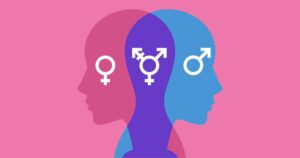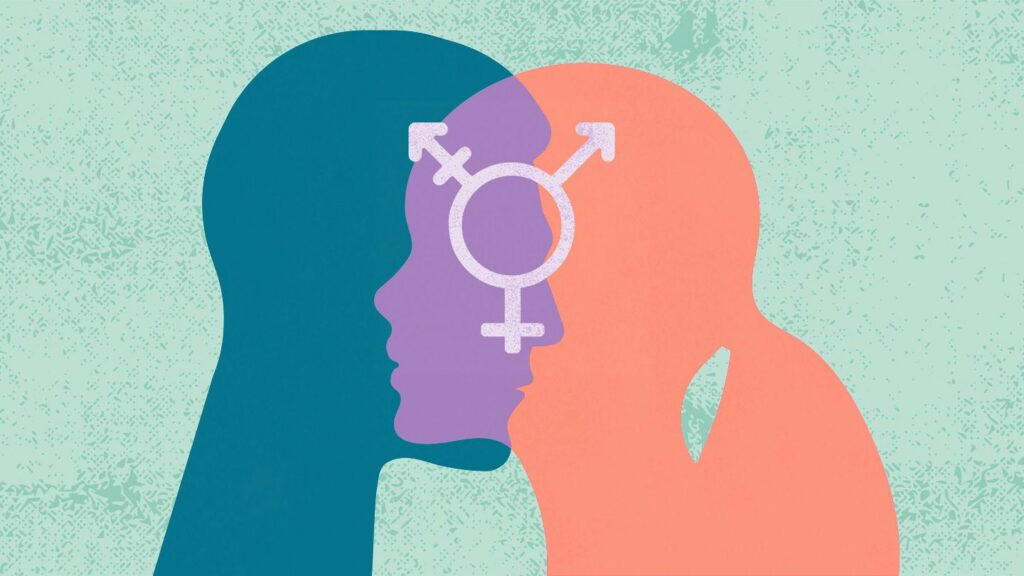Gender dysphoria is a complex and personal experience that can significantly impact an individual’s well-being and overall quality of life. It refers to the distress a person may experience when their gender identity does not align with the sex they were assigned at birth. Gender dysphoria counseling provides crucial support to individuals navigating this journey of self-discovery and self-acceptance. In this article, we will explore the significance of gender dysphoria counseling, its benefits, and how to find appropriate support.
Contents
What is Gender Dysphoria?

Gender dysphoria is a term used to describe the emotional and psychological distress resulting from a mismatch between a person’s gender identity and the sex they were assigned at birth. It is important to understand that gender dysphoria is not a mental illness but rather a condition that requires understanding, support, and appropriate guidance.
The exact causes of gender dysphoria are not fully understood. Research suggests that it may arise from a combination of genetic, hormonal, and environmental factors. Gender identity, which is deeply rooted in a person’s sense of self, may not align with societal expectations or traditional gender norms. This incongruence can lead to feelings of confusion, discomfort, and distress.
Gender Dysphoria Counseling
Gender dysphoria counseling, also known as gender identity counseling or transgender counseling, is a therapeutic process that aims to support individuals who experience gender dysphoria. Also, gender dysphoria refers to the distress or discomfort a person feels when their gender identity differs from the sex they were assigned at birth.
Gender dysphoria counseling typically involves working with a mental health professional who has expertise in gender identity issues and is knowledgeable about transgender and non-binary experiences. The counselor’s role is to provide a safe and supportive environment for individuals to explore and express their gender identity, as well as to help them navigate the challenges and emotional difficulties that may arise during the process.
Here are some key aspects of gender dysphoria counseling:
- Exploration of gender identity: The counselor assists individuals in exploring their gender identity, facilitating discussions around their feelings, experiences, and desires related to their gender.
- Coping with dysphoria: The counselor helps individuals develop coping strategies to manage the distress associated with gender dysphoria. This may involve addressing body dysphoria, social challenges, and emotional well-being.
- Education and support: The counselor provides information about gender identity, transgender issues, and available resources. They also offer support and validation throughout the counseling process.
- Assistance with social and medical transitions: If desired, the counselor can help individuals navigate the process of coming out, changing names and pronouns, accessing hormone therapy, and exploring options for gender-affirming surgeries. They may also collaborate with other healthcare professionals, such as endocrinologists or surgeons.
- Mental health support: Gender dysphoria counseling often addresses mental health concerns that may accompany the experience of gender dysphoria, such as depression, anxiety, or self-esteem issues. The counselor may use various therapeutic approaches to help individuals manage these challenges effectively.
The Importance of Seeking Help

Seeking help for gender dysphoria is crucial for several reasons:
- Emotional well-being: Gender dysphoria can cause significant distress, anxiety, and depression. Seeking counseling can provide a supportive environment where individuals can express their feelings, explore their gender identity, and develop coping strategies to manage their emotions. Counseling can help improve emotional well-being and overall quality of life.
- Validation and acceptance: Gender dysphoria counseling offers a safe space where individuals can be validated and accepted for their gender identity. It allows them to discuss their experiences openly, without fear of judgment or rejection. Working with a knowledgeable and affirming counselor can help individuals feel understood and supported.
- Exploration and self-discovery: Counseling provides an opportunity for individuals to explore their gender identity more deeply. Through conversations and self-reflection, individuals can gain a better understanding of themselves and their gender identity. This exploration can lead to greater self-acceptance and a clearer sense of who they are.
- Education and guidance: Gender dysphoria counseling can provide important information about gender identity, transgender experiences, and available resources. Counselors can help individuals navigate the complexities of coming out, social transitions, and medical interventions. They can offer guidance, answer questions, and provide referrals to other healthcare professionals as needed.
Finding Gender Dysphoria Counseling
When seeking gender dysphoria counseling, it’s important to find a counselor who is knowledgeable, affirming, and experienced in working with gender-diverse individuals. Here are some steps you can take to find appropriate counseling:
- Research local resources: Start by researching local counseling or therapy centers that specialize in LGBTQ+ issues or gender identity. Look for organizations or clinics that explicitly mention experience with gender dysphoria or transgender counseling.
- Seek referrals: Ask for recommendations from trusted sources, such as LGBTQ+ support groups, healthcare providers, or community organizations. They may be able to provide you with referrals to counselors who have expertise in gender dysphoria.
- Online directories: Utilize online directories that specialize in connecting individuals with LGBTQ+-affirming therapists or counselors. Websites like Psychology Today, Pride Counseling, or the GLMA (Gay and Lesbian Medical Association) directory can help you find professionals who specialize in gender identity issues.
- Contact LGBTQ+ organizations: Reach out to local LGBTQ+ organizations, community centers, or advocacy groups in your area. They often have resources and can provide recommendations for counselors who have experience working with gender dysphoria.
- Consult with healthcare professionals: Speak to your primary care physician, endocrinologist, or any other healthcare provider who may have experience working with transgender or gender-diverse individuals. They may be able to refer you to counselors who specialize in gender dysphoria.
- Assess compatibility: When contacting potential counselors, feel free to ask questions about their experience, approach, and familiarity with gender dysphoria issues. It’s essential to find someone who understands your unique needs and provides a safe, affirming, and supportive environment.
- Support groups: Consider joining local or online support groups for transgender or gender-diverse individuals. These groups often have members who can share their experiences and provide recommendations for gender dysphoria counselors.
Types of Gender Dysphoria Therapy
There are several types of therapy commonly used to support individuals experiencing gender dysphoria. These therapies can help individuals explore their gender identity, cope with dysphoria, and facilitate their journey toward greater self-acceptance. Here are some of the main types of gender dysphoria therapy:
- Individual therapy: Individual therapy, also known as talk therapy or counseling, involves one-on-one sessions between the individual and a mental health professional. It provides a safe and confidential space for individuals to discuss their feelings, experiences, and challenges related to gender dysphoria. Individual therapy can help individuals explore their gender identity, develop coping strategies, and address any mental health concerns that may arise.
- Cognitive-behavioral therapy (CBT): CBT is a type of therapy that focuses on identifying and challenging unhelpful thoughts and behaviors. In the context of gender dysphoria, CBT can help individuals address negative thoughts and beliefs about their gender identity, manage dysphoria-related anxiety or depression, and develop healthier coping mechanisms. CBT techniques can be used to improve self-esteem, body image, and overall well-being.
- Family therapy: Family therapy involves sessions with the individual experiencing gender dysphoria and their family members or chosen support system. It aims to improve communication, understanding, and acceptance within the family unit. Family therapy can provide education about gender identity, address concerns or misunderstandings, and facilitate a more supportive and affirming environment for the individual.
- Group therapy: Group therapy involves participating in therapy sessions with a group of individuals who are experiencing similar challenges. In the context of gender dysphoria, group therapy can provide a supportive community where individuals can share their experiences, offer each other validation and support, and learn from one another. Group therapy can be particularly helpful in reducing feelings of isolation and building a sense of belonging.
The Role of a Gender Dysphoria Counselor

The role of a gender dysphoria counselor is to provide support, guidance, and expertise to individuals who are experiencing gender dysphoria. They play a crucial role in helping individuals navigate their gender identity, cope with dysphoria, and work towards greater self-acceptance and well-being. Here are some key aspects of a gender dysphoria counselor’s role:
- Creating a safe and affirming space: A gender dysphoria counselor establishes a safe, non-judgmental, and confidential environment where individuals feel comfortable expressing their feelings, experiences, and concerns related to their gender identity. They ensure that the therapeutic space is affirming, respectful, and free from discrimination.
- Exploration of gender identity: A gender dysphoria counselor facilitates an exploration of the individual’s gender identity. They help individuals reflect on their feelings, thoughts, and experiences, assisting them in understanding and articulating their gender identity more fully. This exploration may involve discussions about gender roles, societal expectations, and personal experiences.
- Providing education and information: Counselors provide information about gender identity, transgender experiences, and available resources. They offer education to help individuals understand their own gender identity, address misconceptions, and navigate the process of self-discovery and potential transition. They may provide resources and referrals to other professionals, support groups, or community organizations.
- Coping with dysphoria and mental health concerns: Gender dysphoria counselors assist individuals in developing coping strategies to manage the distress and emotional challenges associated with gender dysphoria. They may address issues such as body dysphoria, social challenges, anxiety, depression, or self-esteem concerns. They provide emotional support, validate individuals’ experiences, and help them develop resilience and self-care practices.
Conclusion
Gender dysphoria counseling is an invaluable resource for individuals navigating the complexities of their gender identity. It offers a supportive and understanding environment for exploration, self-acceptance, and personal growth. By seeking help from qualified gender dysphoria counselors, individuals can embark on a transformative journey toward self-discovery, resilience, and enhanced emotional well-being.
Life may sometimes be challenging if you are transgender, but Online Transgender Counseling can help. Get experienced LGBTQ therapists at PrideMantra: Book a trial LGBTQ therapy session.


